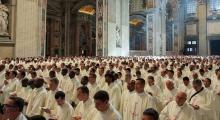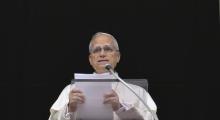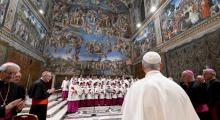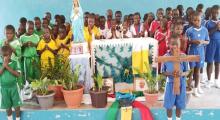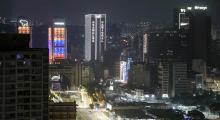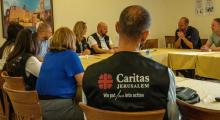Issued by the Catholic Center for Studies and Media - Jordan. Editor-in-chief Fr. Rif'at Bader - موقع أبونا abouna.org
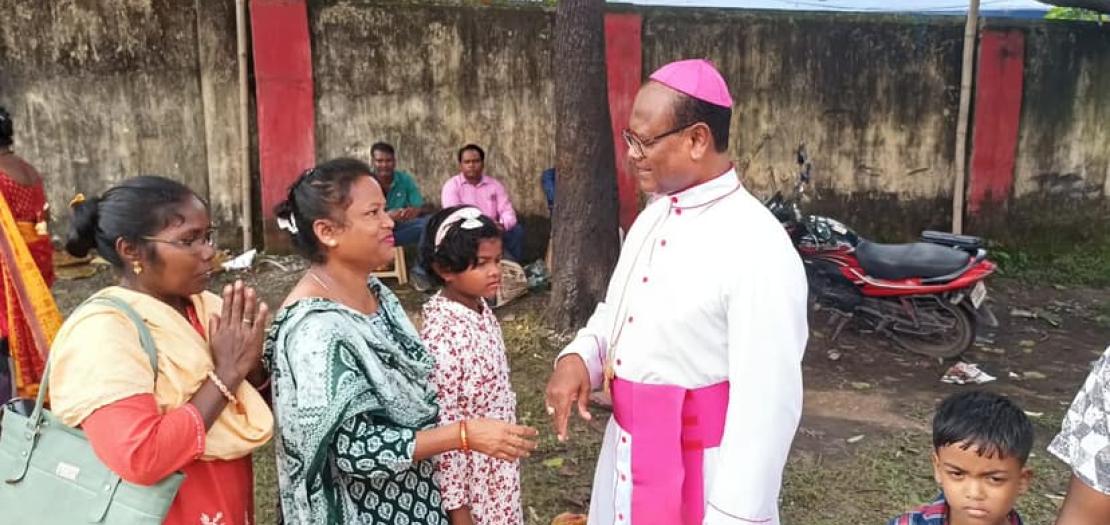
Archbishop Vincent Aind of Ranchi in India
As the Church marked the World Day of the Poor, an archbishop in India spoke about how in one area rich in minerals and forest, the people still suffer from poverty.
Archbishop Vincent Aind of Ranchi, the capital city and second largest city of the Indian state of Jharkhand, said some of the citizens are poor economically “and many more are poor in several other ways.”
Jharkhand is in eastern India and is nearly 68 per cent Hindu. Muslims make up over 14 per cent of the population, while Christians are 4.3 per cent of the people, higher than the national average.
“The Archdiocese of Ranchi covers an area of the State of Jharkhand which is rich, one of the richest in the country, in minerals of several kinds and forest etc. But a good majority of people living in the area are poor,” Aind told Crux.
The archbishop was marking the World Day of the Poor, taking place on November 17, and with this year’s theme being “The prayer of the poor rises up to God”. (Sirach 21:5)
The World Day of the Poor was instituted by Pope Francis after the Jubilee Year of Mercy, and the first one took place in 2017. Events are organized to mark the occasion in dioceses around the world.
“As we observe the 8th World Day of the Poor, we focus on the poor in every sense of the word. There are many in abject poverty as a consequence of lacking in resources,” Aind said.
“There are poor also in the sense of lacking in courage to try different ways of cultivating and lacking in courage to try changing different modes and means of utilizing their resources. There are some who have left the land fallow because they migrated either permanently or temporarily in search of better ways of earning ‘cash’,” the archbishop continued.
“There are poor not in the sense of ‘have-nots’ but in the sense of ‘lacking in knowledge’, which is partly the result of ‘no education’! But there are also some who are poor in motivation. In addition, there are some who somehow afford to possess modern gadgets but do not use it to sharpen their minds,” he told Crux.
“Again, there many who are also spiritually poor, who no longer care for anything spiritual or religious. Thus, this 8th World Day of the Poor must focus on these varieties of poor. ‘The prayer of the poor will rise up to God’ (Sirach 21:5), if the poor herself/himself realizes her/his poverty in any of the above-mentioned senses and raises his/her soul to God! We, who are concerned with the poor, must take care of the poor in every sense of the poor!” Aind said.
A disproportionate share of India’s Christian population, roughly 28 million people, is made up of Tribals and “Dalits,” meaning the “untouchables” under the ancient caste system. Both groups often see Christianity as a means of emancipation and social improvement.
Tribals often don’t have proper proof of identity, which would allow them to open bank accounts and establish legal residence, because they migrate to other areas of India as teenagers and lack proof of address that would be considered acceptable by government officials.
“The Tribals of Chotanagpur must wake up in every sense,” Aind said, speaking of the community located in his state.


